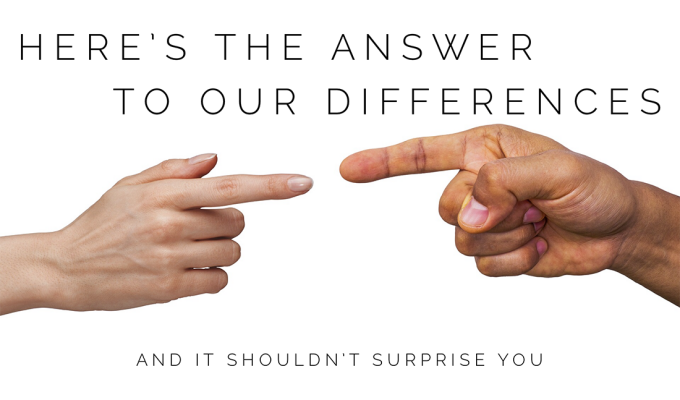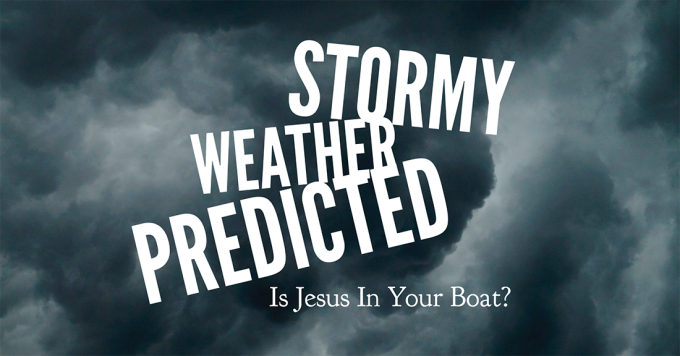You can’t get on the internet or in a conversation…a socially distanced conversation I mean…without coming across someone who has strong differences of opinion. Covid-19 has in many ways added gas to the fire of our differences. For years we’ve watched as political conservatives or liberals have grown further apart. For centuries we’ve seen differences related how to treat Black people, with much to do recently on the internet and in our streets about whether it’s ok to say “All Lives Matter” or “Black Lives Matter”. From the very beginning of COVID-19 in our country people have faced it with a wide range of opinions related to how it should be handled. Most recently people have taken to arguing over whether to wear a mask or how schools should or should not reopen. The list goes on and on…many of the differences we had before COVID-19 are still ever present as well. We’re increasingly becoming a country divided and as each day passes it grows worse.
Before I go any further, it’s worth noting that this isn’t just the world’s problem. We could easily narrow this conversation to just being about the church. The good news is, I’ve found the answer to our differences and division…and it’s not a new answer. During this season, when things have been difficult, every one of us has been impacted in some way. Many of us struggle to varying degrees mentally and emotionally due to the challenges we’re facing right now. The unfortunate side effect of that is it boils over on one another because we so easily become focused on our issues, our opinions, our cause because in our minds…we’re right, we read the right experts and our cause matters most. Let’s take a moment to remind ourselves…starting with me…what the answer is to our differences. If you’re hoping I’m going to affirm your opinion, smash all those people with different opinions and stroke your ego…you might should stop reading here…or maybe this is exactly what you need to read because you feel that way.
Funny thing about Scripture is, it doesn’t say much about building up me, myself, and I…but it has a whole lot to say about how we’re to treat “one another”. It doesn’t bolster my opinion, my view of things, my pride or my selfishness…but it does give a strong and clear command that’s an answer to our division and differences. Let me be clear that none of what follows is possible apart from a relationship with Christ. Through Christ we can solve many things by focusing on “one another”. What would happen if as Christians we began to do these things more than ever before?
- love one another (John 13:35 - this command comes 16 times)
- be devoted to one another (Romans 12:10)
- honor one another above yourselves (Romans 12:10)
- live in harmony with one another (Romans 12:16)
- build up one another (Romans 14:19; 1 Thessalonians 5:11)
- be like minded towards one another (Romans 15:5)
- accept one another (Romans 15:7)
- admonish one another (Romans 15:14; Colossians 3:16)
- care for one another (1 Corinthians 12:25)
- serve one another (Galatians 5:13)
- bear one another's burdens (Galatians 6:2)
- forgive one another (Ephesians 4:2, 32; Colossians 3:13)
- be patient with one another (Ephesians 4:2; Colossians 3:13)
- be kind and compassionate to one another (Ephesians 4:32)
- speak to one another with psalms, hymns and spiritual songs (Ephesians 5:19)
- submit to one another (Ephesians 5:21, 1 Peter 5:5)
- consider others better than yourselves (Philippians 2:3)
- look to the interests of one another (Philippians 2:4)
- bear with one another (Colossians 3:13)
- teach one another (Colossians 3:16)
- comfort one another (1 Thessalonians 4:18)
- encourage one another (Hebrews 3:13)
- stir up one another to love and good works (Hebrews 10:24)
- show hospitality to one another (1 Peter 4:9)
- employ the gifts that God has given us for the benefit of one another (1 Peter 4:10)
- clothe yourselves with humility towards one another (1 Peter 5:5)
- pray for one another (James 5:16)
- confess our faults to one another (James 5:16)
Wow…that’s a lot to take in, but can you imagine if we took that list and each day as we interact with the church and world beyond it we tried to practice the “one another”. What would happen if the next time you come across that liberal or conservative friend on Facebook that always posts the most recent meme or article that just boils your blood and tempts you to debate…fight…with them on Facebook? What would happen the next time you’re told to wear a mask or told people don’t have to wear a mask? What would happen the next time you engage in a conversation where one person believes there is systemic racism and another believes strongly in supporting the police? What would happen if we truly loved one another?
There is no easy way around the complexities of the problems our society faces. How do we deal with a pandemic that hasn’t happened any other time in our lifetime, racism that’s been in our country since the earliest days, a political landscape with 2 extreme and opposing views oftentimes and countless other issues? I can almost guarantee it’s not going to be solved by your anger, your frustration, your harsh words, your arguments, your pride or selfishness on display. If I…I mean we…will pause, ask for the Lord’s help, and seek to love one another in the ways listed above, I think we’d have a much better chance at making it through this crazy time in history.



